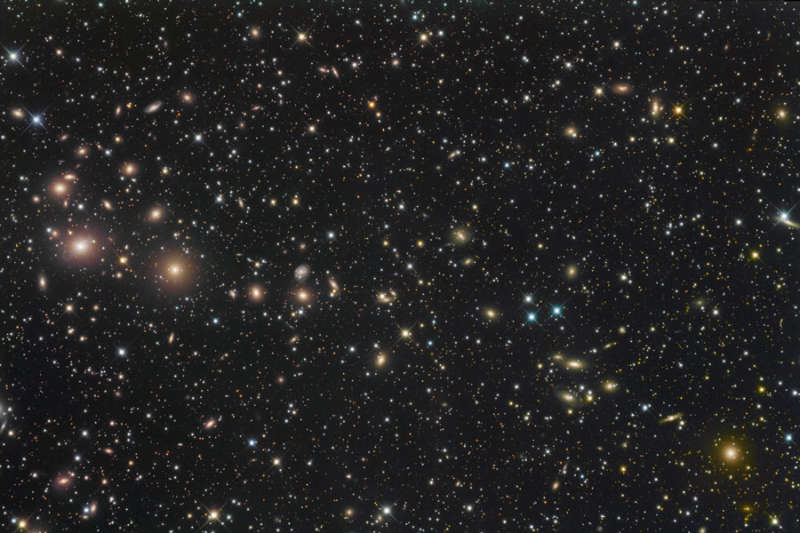
|
Credit & Copyright: Bob Franke
Explanation:
Here is one of the
largest objects that anyone will ever see on the sky.
Each of these fuzzy blobs is a galaxy, together making up the
Perseus Cluster, one of the closest
clusters
of galaxies.
The cluster is seen through a foreground of faint stars in our own
Milky Way Galaxy.
Near the cluster center, roughly 250 million light-years
away, is the cluster's dominant galaxy NGC 1275,
seen above as a large galaxy
on the image left.
A prodigious source of
x-rays and radio emission,
NGC 1275 accretes
matter as gas and galaxies fall into it.
The Perseus Cluster of Galaxies, also cataloged as Abell 426,
is part of the Pisces-Perseus supercluster
spanning over 15 degrees and containing over 1,000 galaxies.
At the distance of NGC 1275, this view covers about 15 million
light-years.
|
January February March April May June July August September October November December |
| ||||||||||||||||||||||||||||||||||||||||||||||||
NASA Web Site Statements, Warnings, and Disclaimers
NASA Official: Jay Norris. Specific rights apply.
A service of: LHEA at NASA / GSFC
& Michigan Tech. U.
Based on Astronomy Picture
Of the Day
Publications with keywords: Perseus cluster - galaxy cluster - NGC 1275
Publications with words: Perseus cluster - galaxy cluster - NGC 1275
See also:
